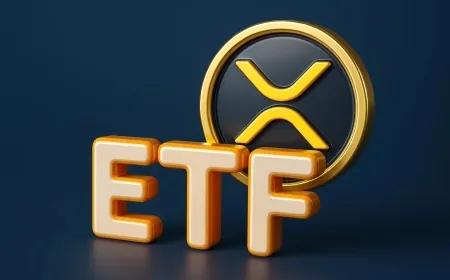How Blockchain Can Tackle Real-World Problems and Achieve Mainstream Adoption
Blockchain is solving real-world challenges, from DeFi to NFTs and stablecoins, driving mainstream adoption and transforming industries worldwide

Blockchain technology has often been compared to the industrial revolution due to its potential to transform industries and revolutionize various sectors. However, for blockchain to achieve mainstream success, it needs to prove its worth by solving real-world challenges in ways that are easy for people to understand and use in their daily lives. From finance to healthcare and energy, blockchain's impact could be far-reaching if certain obstacles are overcome.
Enhancing User Experience: A Key to Adoption
For blockchain to become as widely used as the internet, it must be simple and accessible to everyone. Currently, blockchain is often seen as a complex technology mainly tied to cryptocurrencies like Bitcoin. However, experts believe that if blockchain-based applications are made more user-friendly, it could become a part of everyday life just like online shopping or social media.
In the financial world, blockchain could revolutionize the way transactions are made. Beyond cryptocurrencies, decentralized finance (DeFi) platforms and stablecoins offer alternatives to traditional banking systems. Stablecoins, which are cryptocurrencies pegged to stable assets like the U.S. dollar, are seen as a promising tool for global trade due to their stability. These innovations could simplify cross-border payments and make transactions faster, more secure, and cheaper.
Revolutionizing Healthcare and Real Estate
Blockchain's potential extends beyond finance. One exciting use case is in healthcare, where blockchain can be used to securely manage medical records. Imagine a world where a patient’s health data is easily accessible across hospitals and clinics, no matter where they are, while ensuring privacy and security. This could lead to better patient care, fewer errors, and improved efficiency in the healthcare system.
Similarly, the real estate industry could benefit significantly from blockchain. Recording property ownership and transactions on the blockchain could reduce fraud, speed up sales, and bring more transparency to the process. This would benefit both buyers and sellers by making the transfer of property smoother and more secure.
Blockchain in Supply Chain and Renewable Energy
Blockchain is already making an impact on supply chain management. Companies are using it to track products from the moment they are created to the point they reach consumers. This is especially important in industries like food and pharmaceuticals, where transparency and traceability are crucial for safety and compliance. Blockchain can help prevent fraud, ensure quality, and make recalls more efficient if something goes wrong.
In the energy sector, blockchain can help promote the use of renewable energy. Through decentralized energy networks, people can buy and sell energy directly from each other, bypassing traditional energy companies. For example, blockchain can facilitate peer-to-peer energy trading, making it easier for individuals to buy excess solar power from their neighbors. This could encourage more people to switch to renewable energy sources like solar and wind, driving a shift toward a more sustainable future.
Overcoming Challenges to Mainstream Success
Despite its potential, blockchain faces several hurdles. Regulatory uncertainty and technical challenges have slowed its adoption. To gain mainstream acceptance, blockchain must build trust with governments, regulators, and the general public. Clear regulations that protect users’ privacy and security while ensuring compliance with global laws are crucial for blockchain's growth. Additionally, there needs to be greater awareness of blockchain’s benefits beyond cryptocurrencies, so that people understand its real-world applications.
Collaboration will also be key. Governments, private companies, and educational institutions need to work together to develop blockchain in a way that encourages innovation while maintaining control. By creating environments where blockchain projects can be safely tested and improved, the technology can evolve in a way that meets the needs of both users and regulators.
The Path Ahead for Blockchain
Blockchain technology has the potential to transform various industries and solve real-world problems. Its future depends on making the technology accessible, secure, and scalable for everyone. If blockchain can meet these challenges, it could become as essential to our daily lives as the internet, offering faster transactions, more transparency, and greater efficiency across a range of sectors.
As blockchain continues to develop, its success will be measured by its ability to improve people's lives and drive positive change in the world.
Also Read: BlackRock's Bitcoin and Ether ETFs Surpass Grayscale for First Time in Assets
































































